Indigenous Governance Database
Cultural Affairs
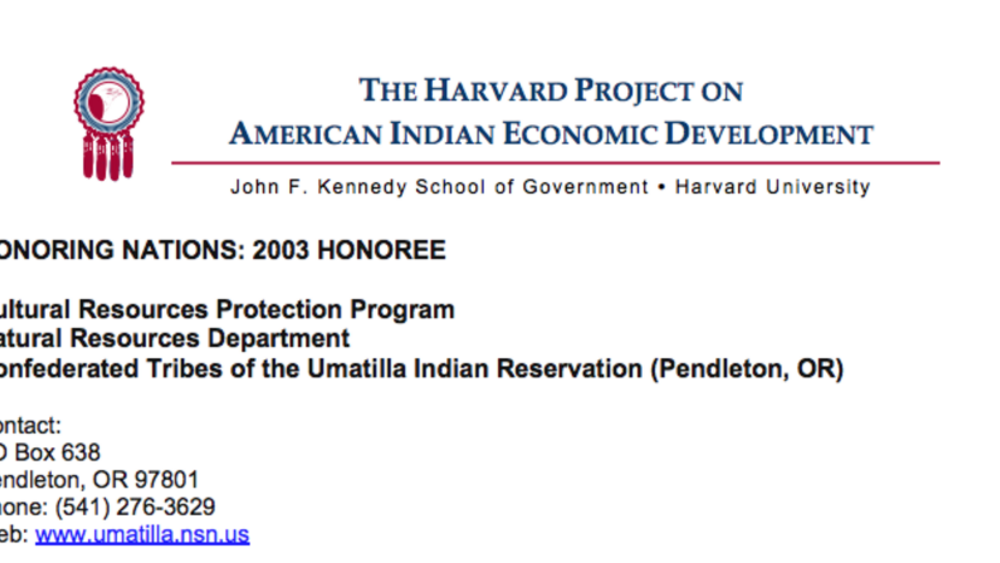
Umatilla Cultural Resources Protection Program
Frustrated by how tribal cultural resources were managed on tribal, federal, state, and private lands, the Tribes developed their own cultural resources protection program. The 15-year-old program is a leader in educating non-Indian agencies about pertinent laws and treaties, strengthening cultural…
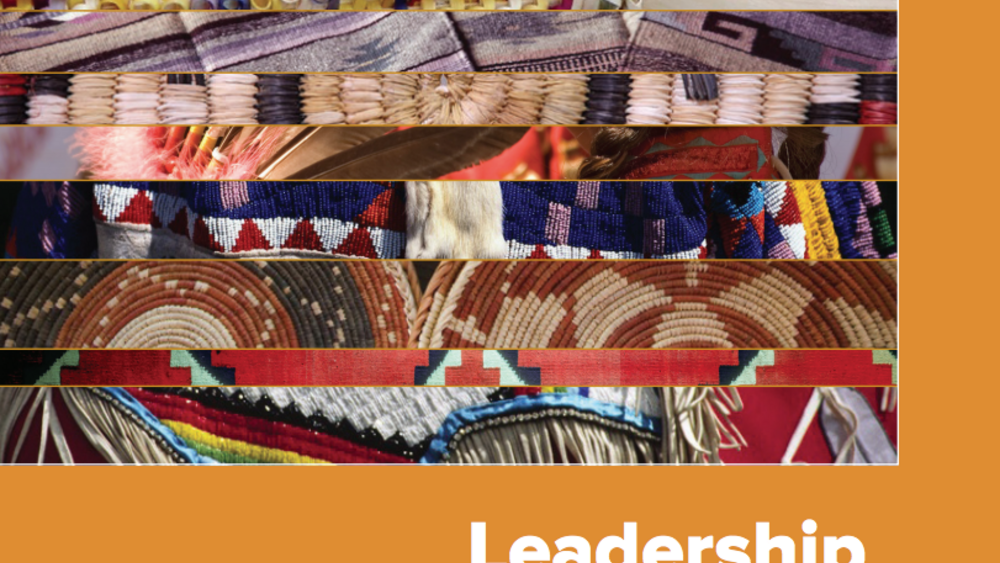
Leadership Development in the Native Arts and Culture Sector
Burgeoning cultural renewal in Native America and growing mainstream recognition of Native artists and their ideas have resulted in substantial growth in the Native arts and culture sector. The leaders of Native arts and cultural organizations have been a significant force behind this change. They…
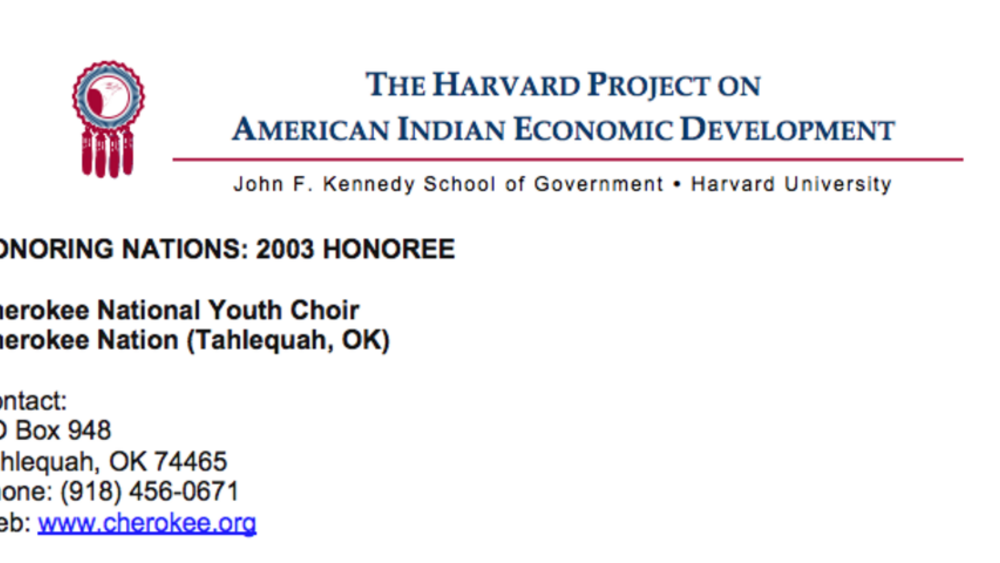
Cherokee National Youth Choir
The Youth Choir presents an innovative approach to promoting and encouraging the use of the endangered Cherokee language among its youth while also instilling Cherokee cultural pride. The award-winning choir — comprised of 40 young Cherokee ambassadors — has performed in venues across the US,…
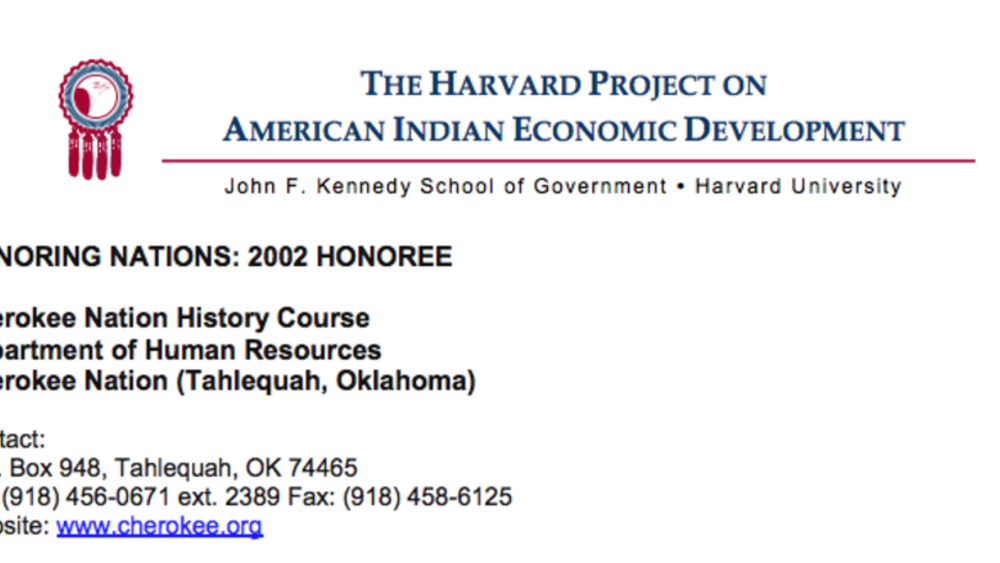
Cherokee Nation History Course
Launched in 2000, the Cherokee Nation History Course is a free, 40-hour, college-level study offered to 1,800 tribal employees and members of Cherokee communities. Through lectures, discussions, case exercises, and role-playing, the course teaches Cherokee history, culture, and government to both…
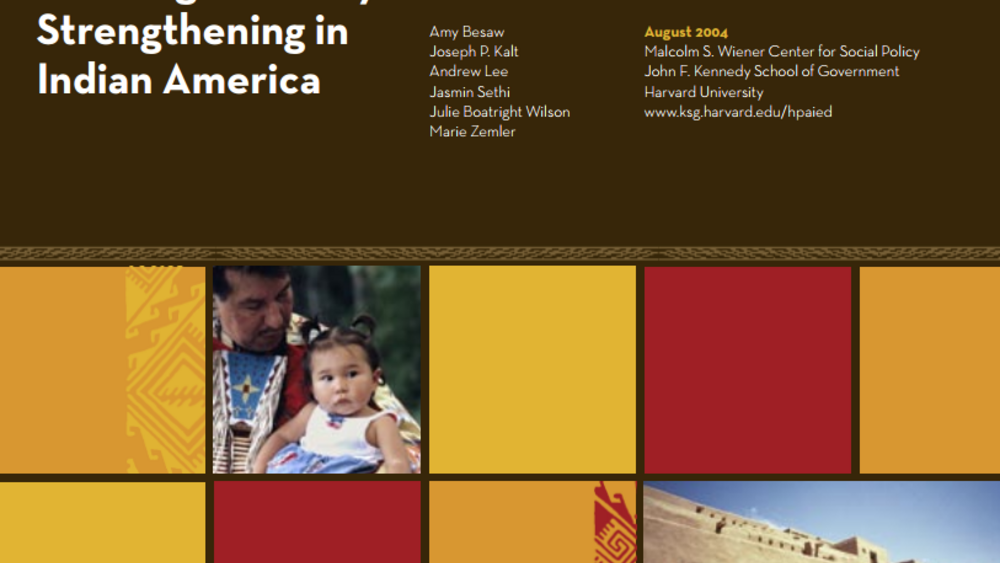
The Context and Meaning of Family Strengthening in Indian America
This report presents five specific, field-based case studies of successful efforts to support the well-being of Native American children. These successful programs were conceived of, implemented by, and generally funded by Tribal communities. These programs include the Ya Ne Day ah School in…
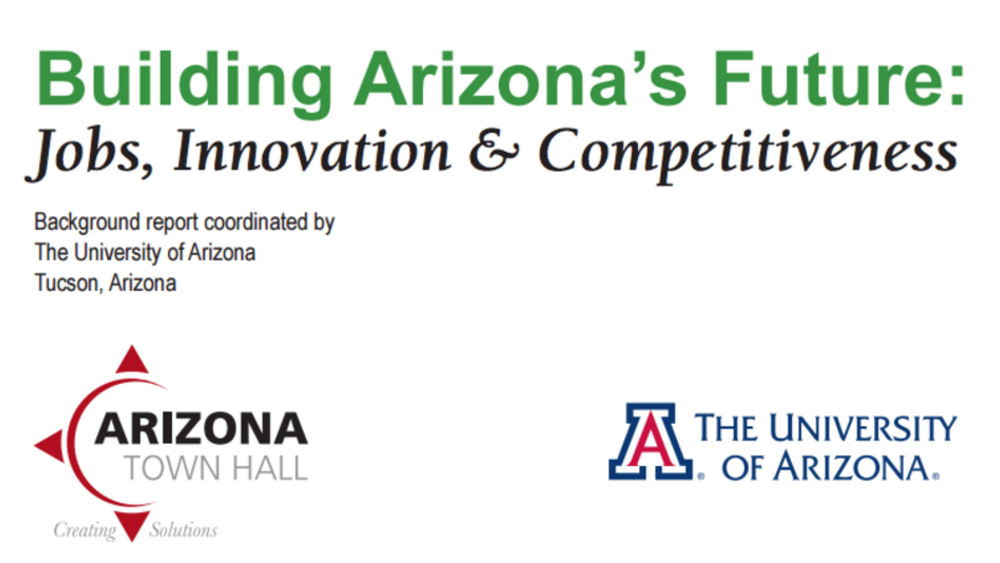
Native Nations and Arizona's Economy
American Indians are disproportionately represented among the low-income residents of the state of Arizona. Across the United States, including in Arizona, reservation economies are growing at a fast pace but low starting points for growth mean that it will take years for American…
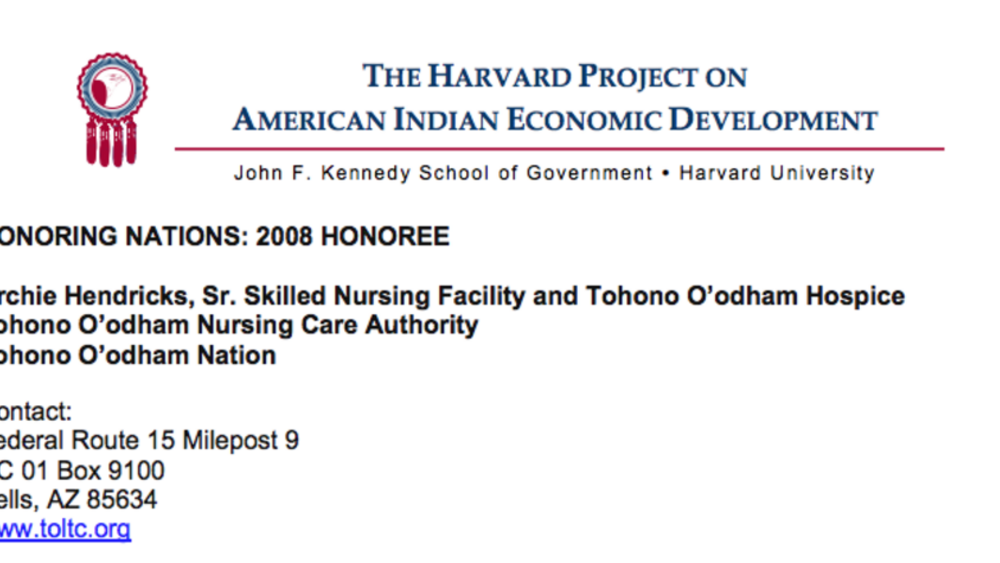
Archie Hendricks, Sr. Skilled Nursing Facility and Tohono O'odham Hospice
For decades Tohono O’odham elders in need of skilled nursing had to move far away from family and friends to receive care, or stay home and forgo long-term care services. However, with the opening of the Archie Hendricks, Sr. Skilled Nursing Facility, O’odham elders can now remain in the community…
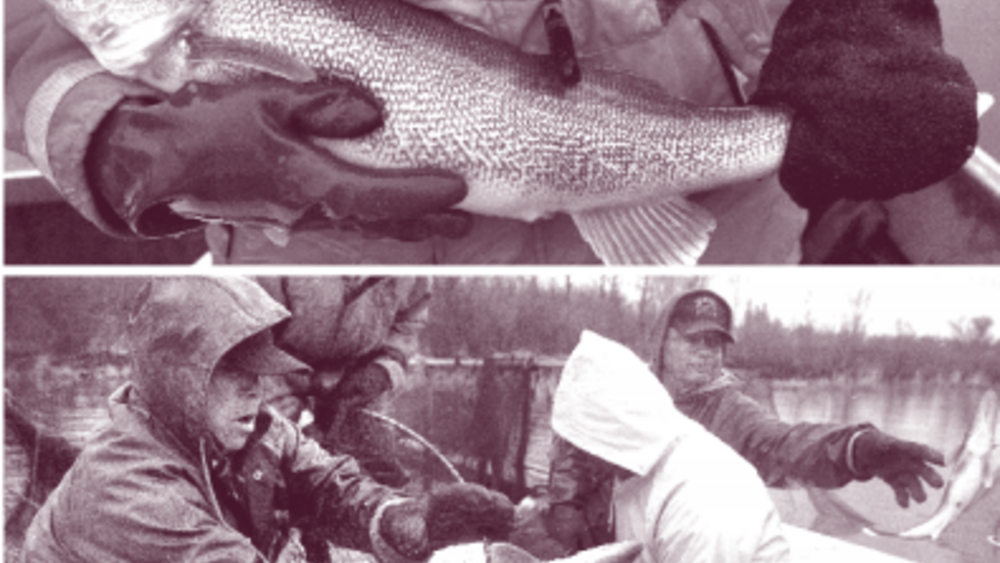
We Are the Stewards: Indigenous-Led Fisheries Innovation in North America
This paper offers an overview of the current state of Indigenous-led fisheries management in the United States and Canada. It summarizes major trends in Indigenous-led fisheries innovation in North America and presents common keys and challenges to the success of these efforts. It chronicles three…
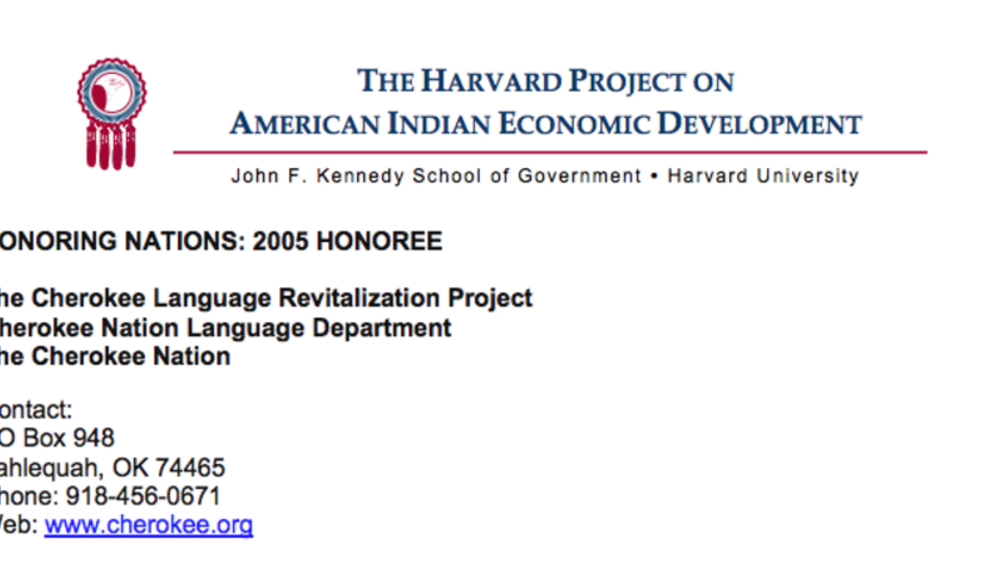
Cherokee Language Revitalization Project
In 2002, the Cherokee Nation carried out a survey of its population and found no fluent Cherokee speakers under the age of 40. The Cherokee Principal Chief declared a "state of emergency," and the Nation acted accordingly. With great focus and determination, it launched a multi-faceted initiative…

The Financial Literacy of Native American Youth
Tests of high school students conducted by the Jump$tart Coalition for Personal Financial Literacy indicate that Native American youth are less prepared to make informed financial choices than most of their peers. Jump$tart and the members of the Native Financial Education Coalition (NFEC) are…
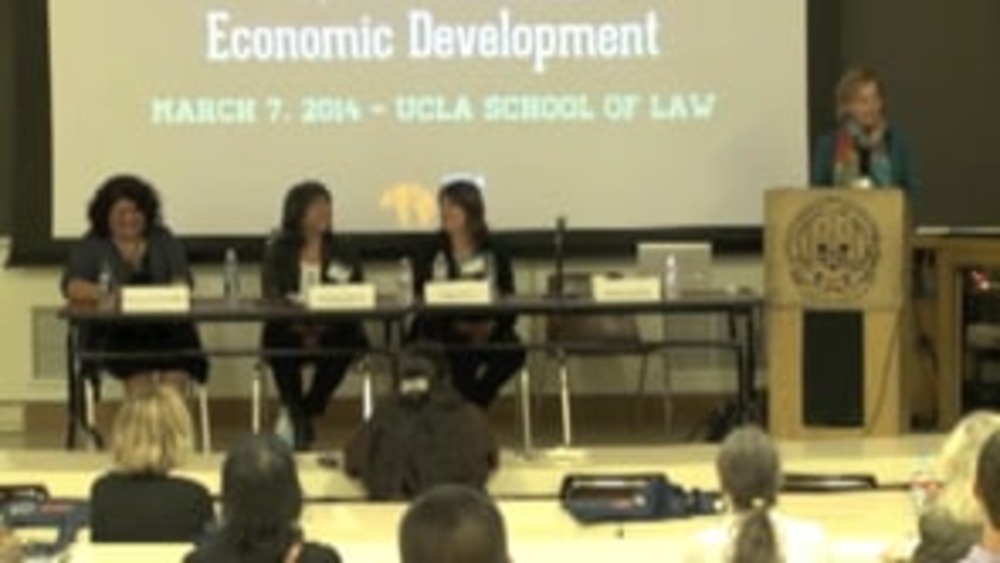
Good Native Governance Plenary 3: Innovative Research in Education: Educating Tomorrow's Tribal Leaders
UCLA School of Law "Good Native Governance" conference presenters, panelists and participants Tiffany S. Lee, Sheilah E. Nicholas, and Tarajean Yazzie-Mintz focus on the process of educating tribal leaders, youth, and entire communities through relationships and collaborations. This video…
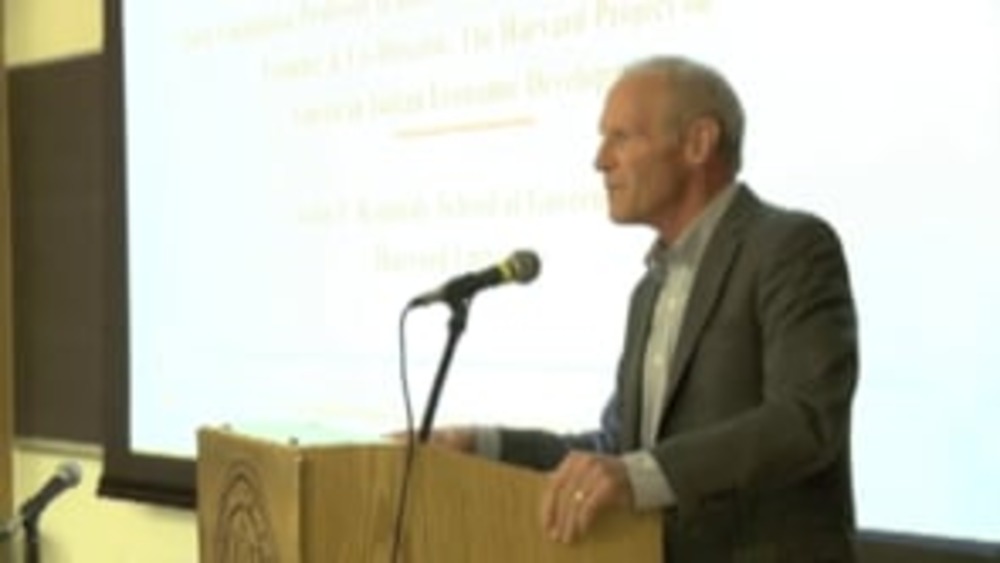
Good Native Governance: Lunchtime Keynote Address
UCLA School of Law "Good Native Governance" conference lunchtime keynote speaker, Joseph P. Kalt discusses research in the areas of good Native governance. This video resource is featured on the Indigenous Governance Database with the permission of the UCLA American Indian Studies…
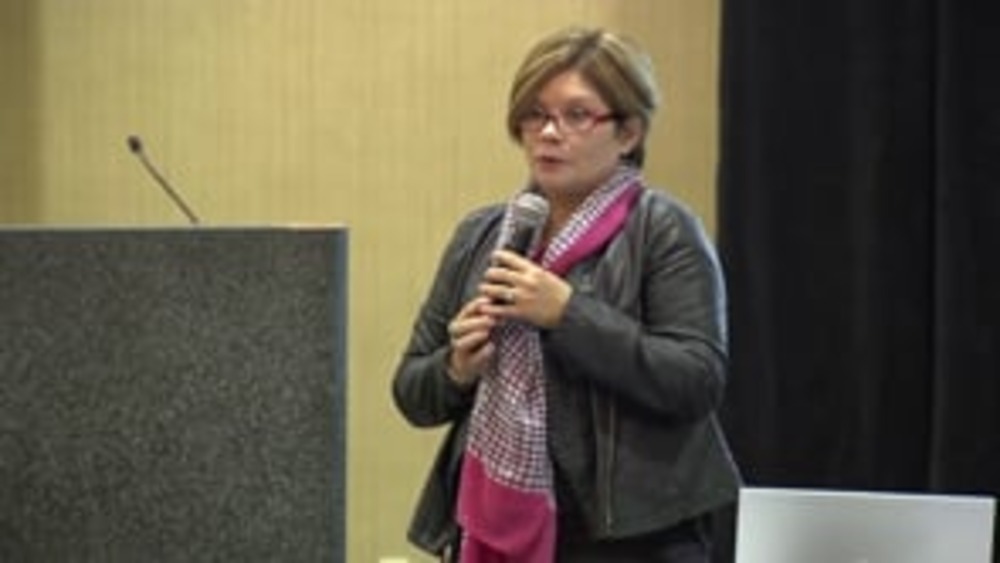
Patricia Riggs: Making Change Happen at Ysleta del Sur Pueblo
Patricia Riggs, Director of Economic Development at Ysleta del Sur Pueblo (YDSP), discusses how YDSP has developed and honed a comprehensive, multi-faceted approach to ciutizen engagement over the past decade in order to ensure that the decisions the YDSP government make reflect and enact the will…
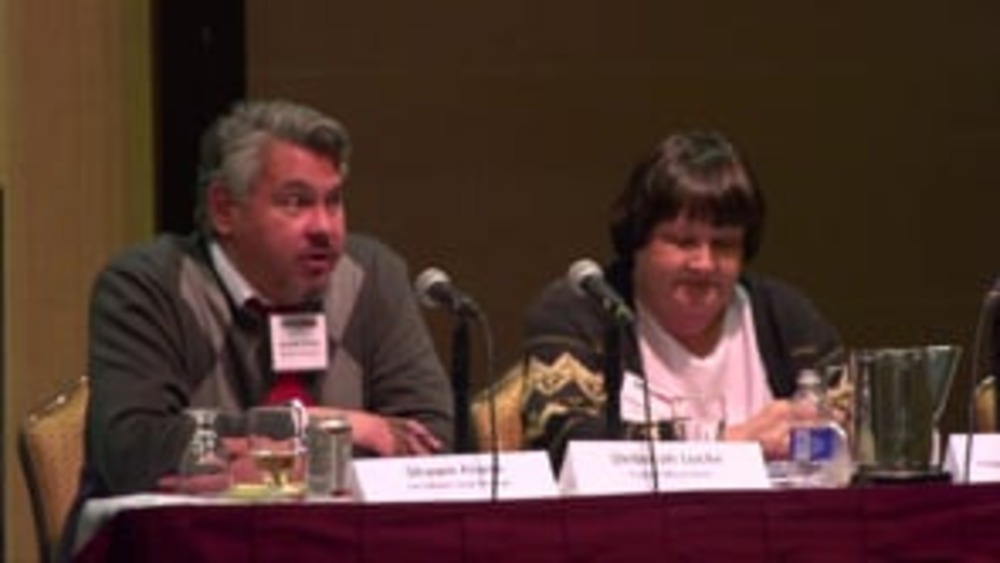
Sharon Day, Shawn Frank and Deborah Locke: Disenrollment (Q&A)
Panelists Sharon Day, Shawn Frank, and Deborah Locke field questions from the audience and a few participants offer their closing thoughts on the question of tribal citizenship and identity. This video resource is featured on the Indigenous Governance Database with the permission of the…
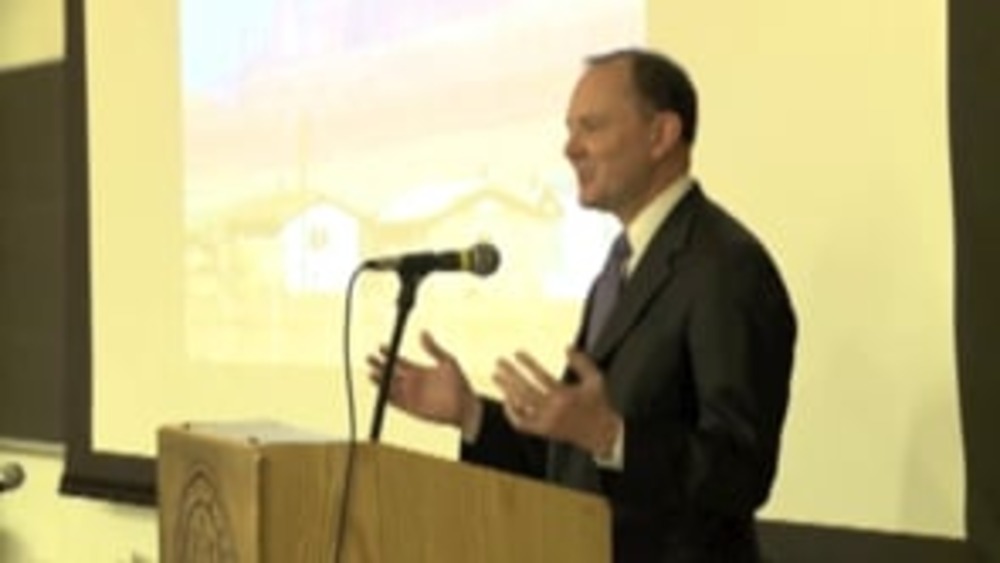
Good Native Governance: Keynote Address
UCLA School of Law "Good Native Governance" conference keynote speaker, Kevin Washburn, Assistant Secretary — Indian Affairs for the U.S. Department of the Interior, examines how Native nations are engaging so well in self-determination through good governance. This video resource is…
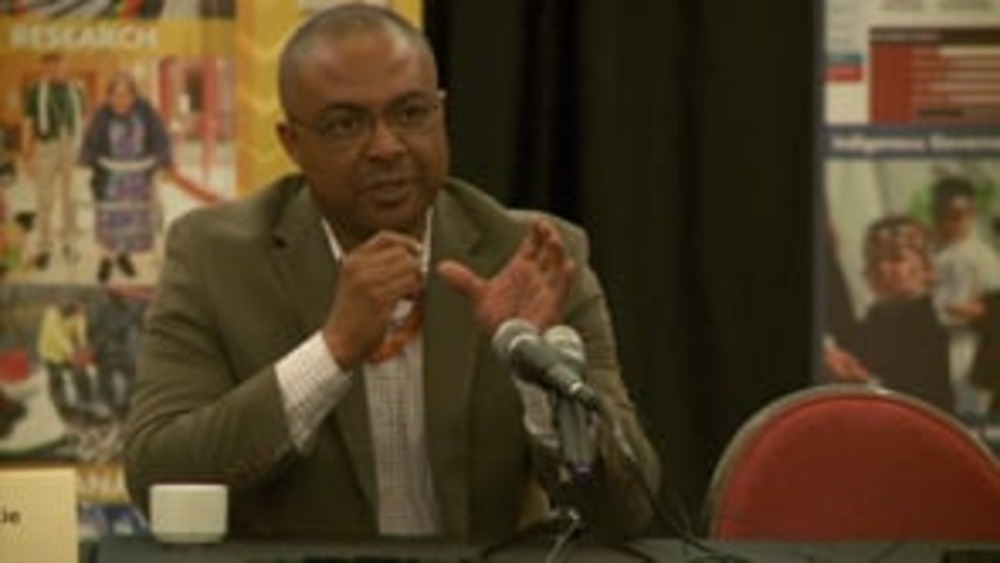
Shannon Douma and Richard Luarkie: How Do We Choose Our Leaders and Maintain Quality Leadership? (Q&A)
Shannon Douma and Richard Luarkie (Pueblo of Laguna) field questions from seminar participants about how the Pueblo and also the Santa Fe Indian School's Summer Policy Academy groom Pueblo youth to take over the reins of leadership of their nations.
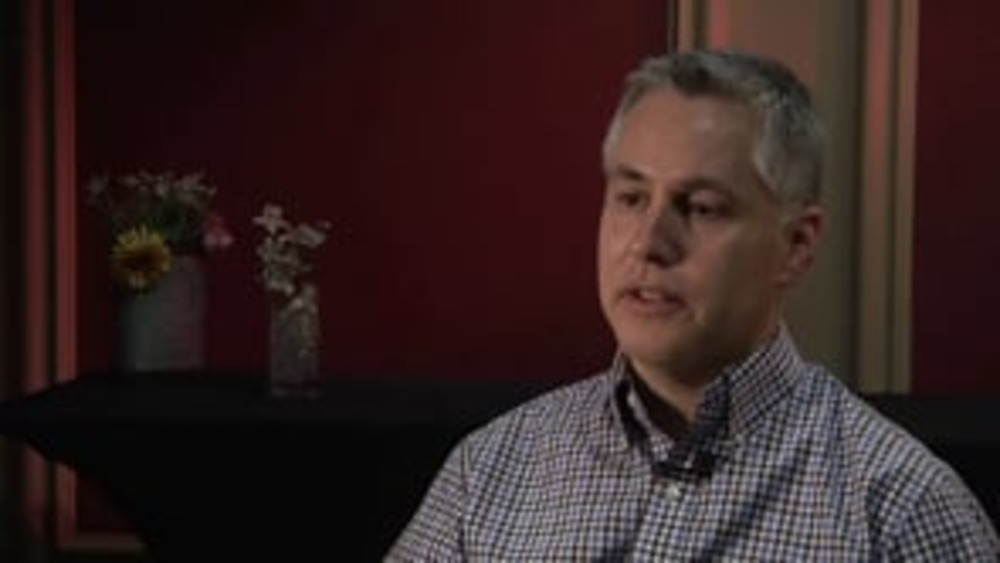
John Borrows: Revitalizing Indigenous Constitutionalism in the 21st Century
In this thoughtful conversation with NNI's Ian Record, scholar John Borrows (Anishinaabe) discusses Indigenous constitutionalism in its most fundamental sense, and provides some critical food for thought to Native nations who are wrestling with constitutional development and change in the 21st…
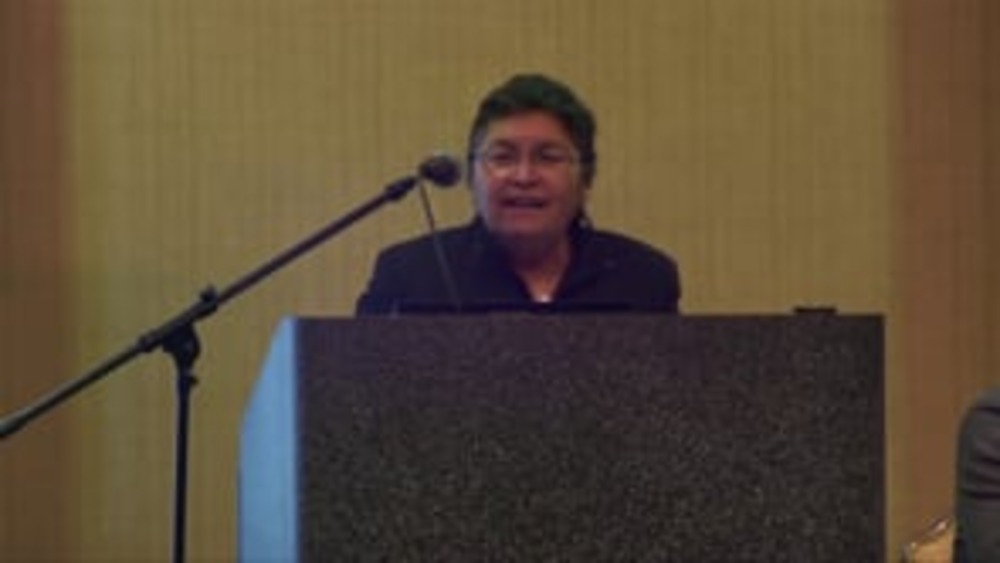
Sharon Day: Disenrollment: Contemplating A More Inclusive Approach
Sharon Day (Bois Forte Band of Chippewa) makes a compelling case for Native nations to abandon externally imposed criteria for citizenship that continue to cause internal divisions within Native nations and communities and instead return to Indigenous cultural values and teachings predicated on…
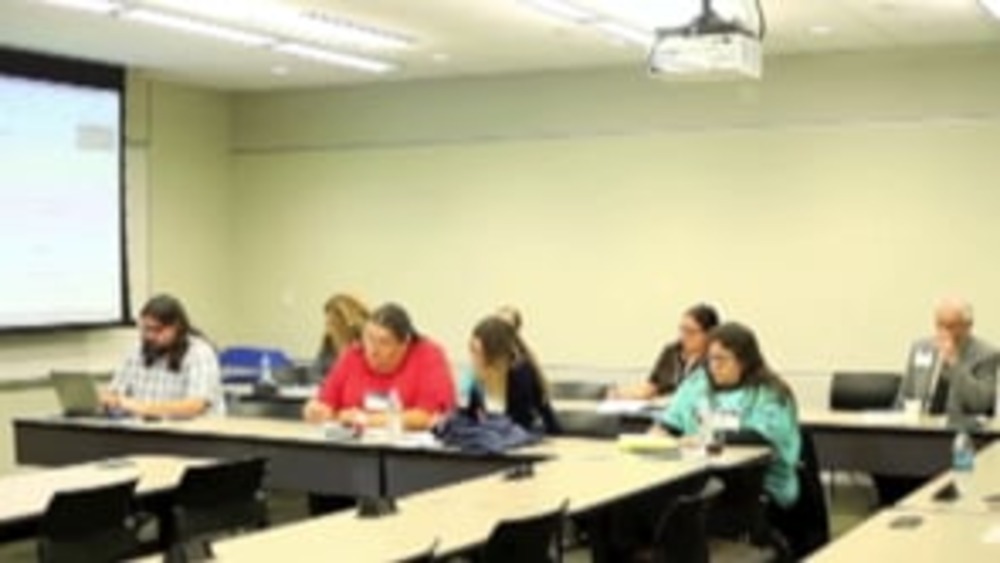
Good Native Governance Break Out 3: Tribal Constitutional Revitalization
UCLA School of Law "Good Native Governance" conference presenters, panelists and participants Melissa L. Tatum, Devon Lee Lomayesva, and Jill Doerfler discuss constitutional reform efforts. Melissa describes the purpose of consitutions. Using her own Nation's experience, Devon discusses the Iipay…
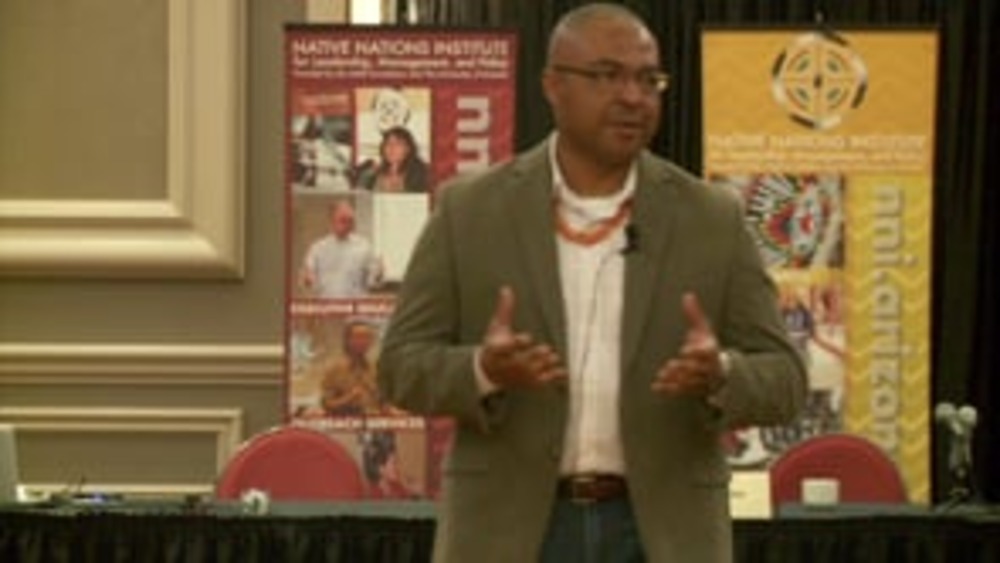
Richard Luarkie: How Do We Choose Our Leaders and Maintain Quality Leadership?: The Pueblo of Laguna
Pueblo of Laguna Governor Richard Luarkie provides a brief overview of how Laguna citizens gradually and systematically ascend up the leadership ranks within the Pueblo through their adherence to and practice of Pueblo core values.
Pagination
- First page
- …
- 2
- 3
- 4
- …
- Last page
